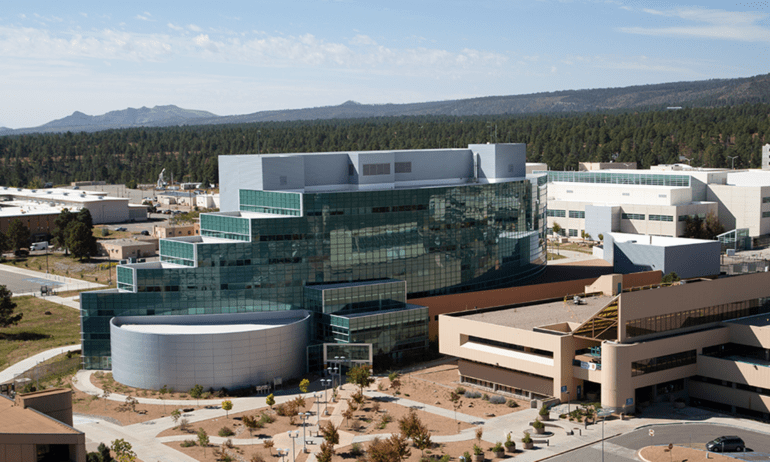TL;DR:
- LANL’s AI and ML projects receive Department of Energy funding for science and energy applications.
- Projects focus on improving accelerator technology, nuclear physics, and fusion energy sciences.
- AI and ML are used to enhance the performance and efficiency of compact accelerators.
- LANL researchers lead initiatives to detect rare heavy quark production and develop AI-based control systems.
- ML is applied to fine-tune beamlines for rare isotope production at the Facility for Rare Isotope Beams.
- AI methodologies are developed to predict and control disruptions in fusion energy systems.
Main AI News:
The Los Alamos National Laboratory (LANL) is at the forefront of innovation, leveraging artificial intelligence (AI) and machine learning (ML) to drive advancements in the field of science and energy. Recently, LANL’s groundbreaking projects in AI and ML have received significant funding from the Department of Energy Office of Science. These projects aim to revolutionize accelerator technology, nuclear physics, and fusion energy sciences, showcasing the laboratory’s commitment to harnessing the transformative power of AI to propel scientific research forward.
Accelerating Science with AI
LANL’s commitment to innovation is evident in its participation in the Accelerator Stewardship and Accelerator Development program, which recently received $16 million in funding from the Department of Energy. Among the funded projects, Alexander Scheinker, a research and development engineer at LANL, leads a project titled “Advanced Adaptive Control Systems for Compact Accelerators.” This project seeks to enhance the performance and efficiency of compact accelerators, streamlining their operation by incorporating adaptive feedback control algorithms, deep convolutional neural networks, and physics-based models. The ultimate goal is to enable autonomous control of compact accelerators, reducing the need for manual intervention by beam physics experts.
AI in Nuclear Physics Accelerators
Under the Office of Science Nuclear Physics program, LANL is involved in two of 15 funded projects, with a combined budget of $16 million. Ming Xiong Liu, a physicist at LANL, is leading a project titled “Intelligent Experiments Through Real-time AI.” This initiative aims to utilize AI and ML-driven experimental methods to detect and record rare occurrences of heavy quark production in high-energy heavy ion collisions at the Relativistic Heavy Ion Collider. Additionally, the project will develop an advanced AI-based readout and control system for the Electron Ion Collider experiment, fostering collaboration with esteemed institutions like MIT and Fermi National Accelerator Laboratory.
LANL’s involvement doesn’t stop there. Alexander Scheinker will also spearhead a project focused on “Online Autonomous Tuning of the FRIB Accelerator Using Machine Learning.” This collaboration, led by Michigan State University, aims to use ML to fine-tune the beamline at the Facility for Rare Isotope Beams (FRIB), uncovering rare isotopes with potential applications in healthcare and beyond. LANL’s participation underscores the laboratory’s dedication to advancing various fields through AI and ML.
AI for Fusion Energy Sciences
The Office of Science Fusion Energy Sciences program has allocated $29 million in funding to support research on machine learning, AI, and data resources for fusion energy sciences. LANL physicist Xianzhu Tang leads a groundbreaking three-year, $3.3 million collaboration called “DeepFusion Accelerator for Fusion Energy Sciences in Disruption Mitigation.” This project seeks to develop fundamental deep learning and AI methodologies to predict and control disruptions in fusion energy systems, initially focusing on tokamak disruption mitigation. LANL’s partnerships with the University of Texas, the University of Florida, and Pennsylvania State University underscore the collaborative nature of this endeavor.
Conclusion:
Los Alamos National Laboratory is at the forefront of leveraging AI and ML to advance science and energy research. With significant funding from the Department of Energy Office of Science, LANL’s innovative projects are poised to reshape accelerator technology, nuclear physics, and fusion energy sciences. These initiatives demonstrate LANL’s commitment to harnessing AI’s transformative power and its dedication to pushing the boundaries of scientific knowledge. As LANL continues to lead the way, the promise of AI in shaping the future of scientific discovery remains brighter than ever.

